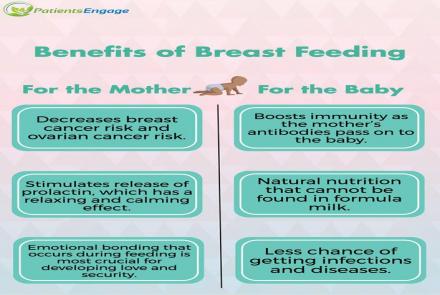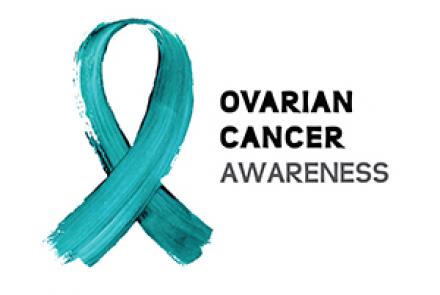
Dr Pallavi Vasal, a Consultant Obstetrics and Gynecology at W Pratiksha Hospital, Gurgaon answers comprehensively to a wide range of questions on Ovarian Cancer - signs, screenings and risks, specifically with endometriosis, cysts and breast cancer. #AskTheDoctor Series.
1. Ovarian Cancer does not exhibit easy to spot signs and symptoms. So what should women watch out for?
Most women have very few symptoms but you may experience one or more of the following:
- Lower abdominal pain or pelvic pain
- Pain during sex
- Pain related to your bowels
- A feeling that you want to pass urine urgently and more frequently
- A change in appetite or feeling full quickly
- A distended (swollen) abdomen
2. How is Ovarian Cancer diagnosed?
Ovarian cancer may be suspected if an ovary appears abnormal on an ultrasound scan. Abnormal blood tests such as high levels of a protein called CA-125 can make it more likely that it is malignant. You are likely to be offered a CT scan (computed tomography scan) of your abdomen and pelvis.
3. Is there any screening recommended for ovarian cancer? How effective is CA-125 or LPA testing?
No screening method has been shown to affect mortality significantly.
High risk women lwho have family history of ovarian cancer, breast cancer,colon cancer should be offered genetic screening and counseling.
4. What are the different types of Ovarian cancer?
- Epithelial ovarian tumours - most common
- Germ cell tumours
- Sex cord-stromal tumours
Fewer than 5% of all ovarian tumours include:-
- Fibroma
- Fibrosarcoma
- Sertoli-Leydig tumours
- Granulosa cell tumours
- Metastatic tumours
5. What are ovarian cysts? Can they develop into cancer?
A cyst is a fluid-filled sac. Cysts develop in various places in the body. Depending on the type of cyst, the fluid within the cyst can range from thin and watery to thick and paste-like. Some cysts have a thicker solid outer part with some fluid within.
The vast majority of ovarian cysts are non-cancerous (benign) but some are cancerous (malignant), or may become cancerous over time. Many do not need any treatment as they go away on their own or cause no problems. Some ovarian cysts may need removal with an operation.
6. What is the difference between ovarian, fallopian tube and peritoneal cancer?
The organ from where the cancer arises is the primary site of cancer. Ovaries and Fallopian tubes are very close to each other and so the spread of cancer from ovaries to fallopian tube and vice versa is quick. Primary peritoneal cancer are rare cancers.
Ovarian epithelial cancer, fallopian tube cancer, and primary peritoneal cancer are diseases in which malignant (cancer) cells form in the tissue covering the ovary or lining the fallopian tube or peritoneum.
Ovarian epithelial cancer, fallopian tube cancer, and primary peritoneal cancer form in the same type of tissue and are treated the same way.
7. Is ovarian cancer genetic? Can I get genetic testing done for it?
Women who have one first degree relative (mother, daughter, or sister) with a history of ovarian cancer have an increased risk of ovarian cancer. This risk is higher in women who have one first-degree relative and one second-degree relative (grandmother or aunt) with a history of ovarian cancer. This risk is even higher in women who have two or more first-degree relatives with a history of ovarian cancer.
Mutations in two major genes, known as BRCA1 and BRCA2, are a frequent cause of hereditary breast/ovarian cancer. These mutations increase the risk of developing these and other cancers. Most genetic testing for breast and ovarian cancer analyzes these two genes for mutations.
8. Is there a link between ovarian cancer and endometriosis? If yes, please explain the link.
New research has found that women with endometriosis have a three times higher risk of developing clear-cell ovarian cancer (which accounts for less than 5 percent of all ovarian cancer cases) and twice the risk of developing endometrioid tumors.
9. What is the connection between breast cancer and ovarian cancer?
Breast and ovaries both are under the influence of same hormones – Estrogen and Progesterone. So, a high risk patient is like one carrying mutations in two major genes, known as BRCA1 and BRCA2, are a frequent cause of hereditary breast/ovarian cancer. These mutations increase the risk of developing these and other cancers. Most genetic testing for breast and ovarian cancer analyzes these two genes for mutations.
10. How can I prevent or reduce my risk of getting ovarian cancer?
- Birth control pills - for every 5 years on the pill, a woman reduces her risk by about 20%.
-
Following a healthy lifestyle and normal BMI decreases the risk.
- Current theories suggest that some types of ovarian cancer may start in the fallopian tubes. If you need to have your uterus removed or you have chosen sterilization as a permanent method of birth control, you may want to ask your ob-gyn or other health care professional about having your fallopian tubes removed. This operation is called a salpingectomy. In this procedure, only the fallopian tubes are removed. The ovaries are left in place. A salpingectomy may help reduce the risk of future ovarian cancer.
Risk-reducing salpingo-oophorectomy also is an option. This is the removal of the fallopian tubes and the ovaries in a woman who does not have cancer. It is recommended for women with BRCA1 or BRCA2 mutations by age 40 years or when childbearing is complete. It also may be recommended for women with Lynch syndrome. This operation reduces the risk of ovarian cancer.
11. Has the incidence of Ovarian Cancer increased or decreased in India? Why is that?
The incidence of ovarian cancer has increased in India; in general, trends in the incidence of ovarian cancer may occur from a variety of factors -
- Changes in diagnostic methods, completeness & reliability of data, changing profile of risk factors in the population, or as a consequence of better health awareness.
- Increasing exposure to risk factors for the disease.
- Changes in aspects of reproductive behavior that are known to be associated with the risk of ovarian cancer such as progressively smaller family size and proportion of sexually inactive women. Nulliparous women are also at an elevated risk.
12. Are newer therapies like Targeted therapies and Immunotherapy available for Ovarian Cancer now?
Biological therapies and targeted therapies have been developed and continue to undergo trials as understanding of the molecular biology of the types of ovarian cancer has advanced.
There may in some cases be a role for hormonal therapies, CA 125 may be used to monitor efficacy of treatment and to monitor for recurrence. The need to test it in follow-up, however, can be guided by the presence of symptoms.
Dr Pallavi Vasal is a Consultant Obstetrics and Gynecology at W Pratiksha Hospital, Gurgaon Sector-56. An alumnus of Royal College of Obstetrics and Gynecologist, London & has completed her fellowship training in minimal access (keyhole) surgery from World Association of Laparoscopic Surgeons.the one of the Best . Her main focus is on making pregnancy a wonderful experience for the patient and enable happy parenthood. Qualification: MBBS | DGO | MRCOG (London) | FMAS

















